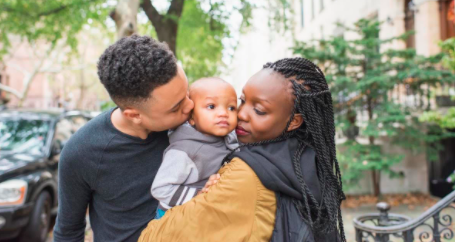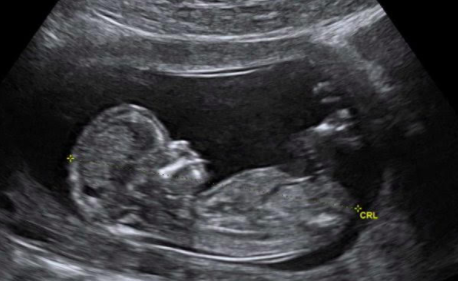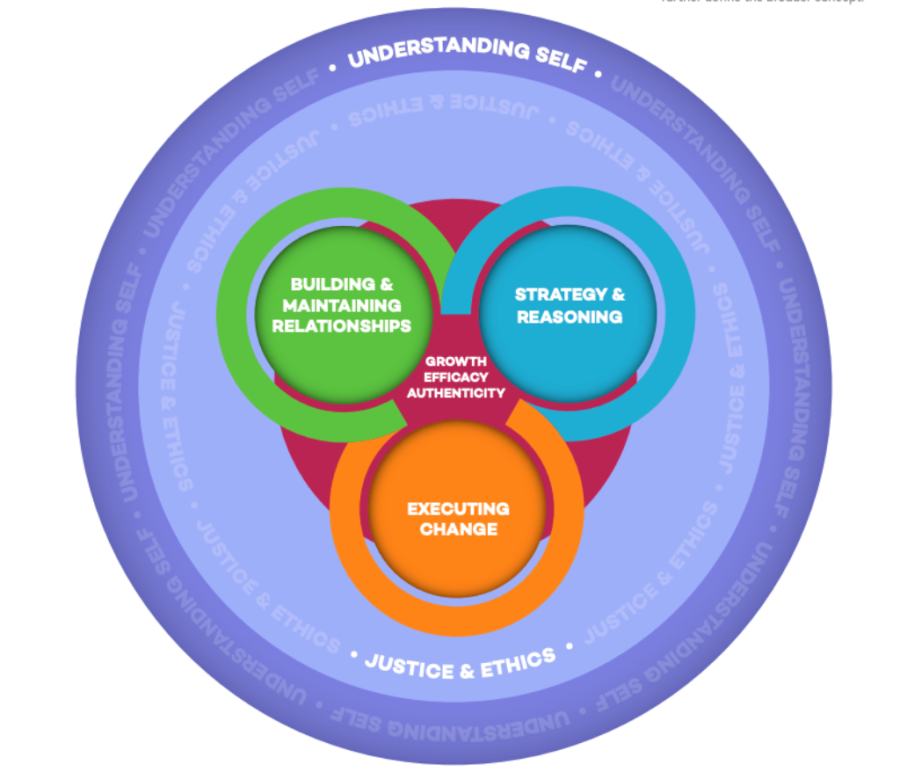
We live in a society where women are told that the embryo and fetus are not babies, and that they ought to abort their child if his or her birth would put any kind of pressure on them, social, professional, or otherwise. The issue of abortion ought not to be a confusing one, but unfortunately, many terms surrounding its discussion become muddled. Many different names are thrown around in an attempt to dehumanize the life being carried in the womb. The fetus is commonly referred to as “a clump of cells” or “a part of the mother’s body.” Some, such as CNN’s Christine Quinn, go as far as to say that, “when a woman gets pregnant, that is not a human being inside of her.” To say such a thing is blatant ignorance of the scientific facts. It is clear that from the moment of conception, the embryo is a separate entity from his or her mother. The baby has his or her own unique set of DNA, fingerprints, and heartbeat. After a careful examination of the pro-choice arguments, it can be clear that the issue of abortion is really one of an unborn baby’s moral worth.
The key reason why abortion is morally wrong is that human life begins at conception. There is no point other than conception in the development of the human child that is solid enough to label as the beginning of life. This is made clear because every other stage listed as a possible beginning of life is merely a step in the development of the human child. We must ask which was the step that promoted the series of events that transformed the egg cell from fertilization into a zygote. Thus, the only reasonable point at which to place the beginning of life is conception, the very moment the egg is fertilized. There is no person on Earth with the authority to kill an unborn, innocent child. Abortion is an immoral practice that should not be allowed under any circumstance.
The first argument to be refuted is the following: pregnancy is not fair to the mother in cases of incest and rape, and she should be able to abort her child in order to prevent psychological issues knowing that she is carrying the child of her abuser. This is certainly a difficult argument, one that must be carefully considered, as such a situation must be terrifying for the mother. However, it comes down to this: one cannot blame the child for the father’s sin. Both incest and rape are criminal acts, so the criminal ought to be punished. The conceived child is completely innocent, and there is no one with the right to kill him or her. Furthermore, if abuse leads to severe trauma on mothers, why should that trauma be coupled with abortion? Countless women who aborted their children report years of physical and psychological trauma. Secondly, many women who got pregnant as a result of rape regret having an abortion, and there is a great number of women who kept their babies conceived in rape that do not regret keeping them (The Beginning of the End of Abortion). An important question that must be asked here is: would it be alright to kill a five-year-old, should one learn that she was conceived from rape? The answer would presumably be no, as the five-year-old is a living human being. However, an unborn child is also a living human being. This argument goes off of the assumption that the unborn baby is not alive instead of addressing that obvious concern. It is manipulative and insinuates that the child is less alive if he or she was conceived from rape. It implies that it is acceptable to kill children conceived from rape if their existence brings the mother pain. It is cheap rhetoric designed to appeal to one’s pathos in order to distract them from real concerns associated with the argument. The baby may have been conceived out of a crime, but he or she has just as much value and moral worth as any other baby.
Another common argument on the pro-choice side is this: women need access to abortion in order to achieve full political and economic equality with men. The initial response to this statement is as follows: how can such a proposition justify killing a human being? This argument completely ignores the case for a child in the womb being alive. One cannot kill another for the purpose of economic gain. If a person’s mother was on life support, and they were the only family member with the conditions to pay the hospital bills, would it be alright to unplug the mother? Of course not, as the mother is a living human being. If the child was conceived through a voluntary situation, neither parent can make a “choice” for the conceived child. No human has the right to decide whether or not an unborn child should be born and allowed to continue to live. If the woman became pregnant through rape or incest, the child should not be killed simply because the father was a criminal. There are also many resources available to the woman, such as crisis pregnancy centers that provide help, and even adoption facilities if she feels that she will not be able to take care of her child. Again, the child may have been conceived through a criminal act, but he or she has just as much moral worth as any other child.
The last argument to be covered is perhaps the most common catchphrase for pro-choice supporters: “my body, my choice,” a statement claiming that having bodily autonomy gives women a moral status equal to men. First of all, the conceived child is not part of the mother’s body, and therefore she has no right to “choose” his or her future in the womb. Science has proven that the mother and embryo are different entities, as well as proving that life begins at conception. The clinical textbook, The Developing Human: Clinically Oriented Embryology, 11th Edition, says, “Human development begins at fertilization…this highly specialized, totipotent cell marked the beginning of each of us as a unique individual.” This is a clear example of science explicitly showing that an embryo is a person. Naturally, women ought to have autonomy over their own bodies, but an unborn baby is a separate individual from the mother beginning at conception. Neither she nor the father nor anyone else can decide to end that child’s life. In addition, another study of embryology, Before we are Born, 10th edition, reads, “There are different opinions of when an embryo becomes a human being because opinions are often affected by religious and personal views. The scientific answer is that the embryo is a human being from the time of fertilization because of its human chromosomal constitution. The zygote is the beginning of a developing human.” Thus, science has proven that human life begins at conception.

Those who defend abortion argue that the fetus’s dependence on his or her mother for survival makes abortion a perfectly sensible option. However, this leads to severe complications. What are we to do about those who cannot live without the help of another human? For example, a toddler, mentally or physically disabled person, or someone on life support? It does not matter that the conceived child could not survive on his or her own outside of the womb; it matters that there is a human life separate from the mother’s involved.
There is no logical case for abortion. Not only is abortion is a highly immoral practice, but the arguments given to defend it do not stand up to scrutiny. It is strange that supporters of abortion claim to be on the side of science, while ignoring the overarching scientific opinion on life in the womb. It is questionable that they profess support for abused women, while convincing them to kill their child. It is curious that those who insist that they advocate for women’s rights and human rights are alright with killing children before they are given a chance to succeed in the world. There is nothing wrong with a woman deciding to not have children in order to focus on her occupation. However, if that woman becomes pregnant, she cannot “choose” to kill that child because she believes taking care of her baby will hinder her job prospects. It is appalling that we live in a society that prioritizes the wealth and career of the individual over the caretaking of a child. The very idea that the mass murder of unborn babies is currently going overlooked in our society poses a threat to our nation’s very soul; no society can survive when it calls the murder of children acceptable. Killing a baby is always wrong.







